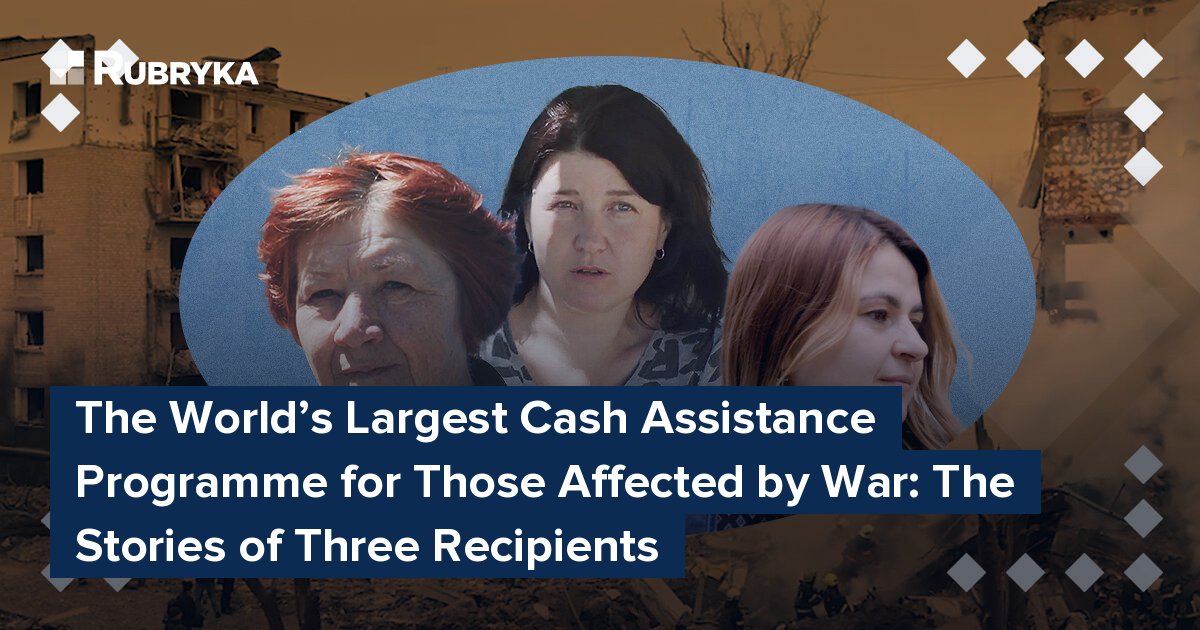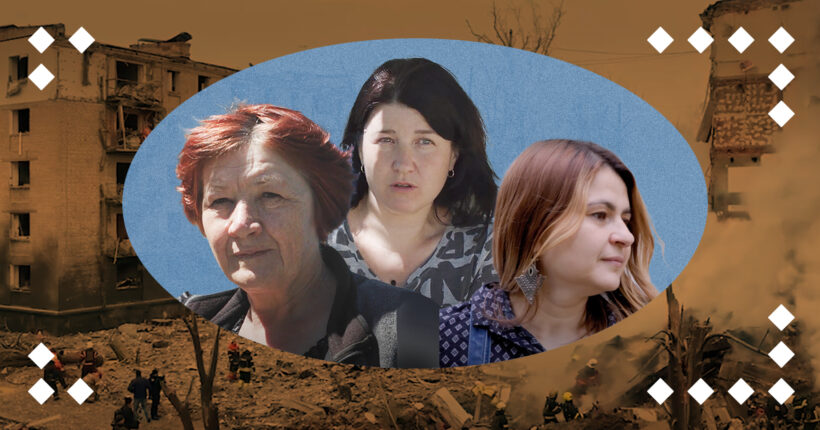
Why cash?
Since the full-scale Russian invasion of Ukraine in February 2022, the lives of millions of Ukrainians have been uprooted. Many have lost loved ones, homes, and the ability to plan for the future. People fleeing the war often lose their jobs, face financial hardship, and bear the high costs of starting over from scratch.
Millions have been forced to rebuild their lives in new communities without their usual income, sufficient belongings, or support.
Cash as a solution
With funding from the European Union and other donors, UNHCR in Ukraine is implementing its largest cash assistance programme globally to help people adversely impacted by the war meet their individual needs. Cash assistance supports the population by helping them cover housing costs, repair damaged homes, or purchase essential items.
"UNHCR's cash assistance programme in Ukraine has been a lifeline for more than 2.2 million people, forcibly displaced or otherwise affected by the full-scale Russian invasion. Through its various modalities, it enables people to meet their most basic needs—whether it is repairing war-damaged homes, securing dignified housing, or covering utility bills and buy solid fuel during the cold winter months. This intervention not only provides people with the dignity of choice in managing their resources and a sense of independence, but also strengthens the local economy by offering vital support during these challenging times," said Karolina Lindholm Billing, UNHCR's Representative in Ukraine.
In 2024, in cooperation with the Ministry of Reintegration of the Temporarily Occupied Territories of Ukraine—and as part of its winterization response—UNHCR is implementing a winter cash assistance programme valued at USD 37 million to support more than 70,000 families living in areas where hostilities are ongoing or have recently ended. In addition, UNHCR is financing another winter cash programme with Ministry of Social Policy and the Pension Fund to help vulnerable families buy solid fuel during the cold months.
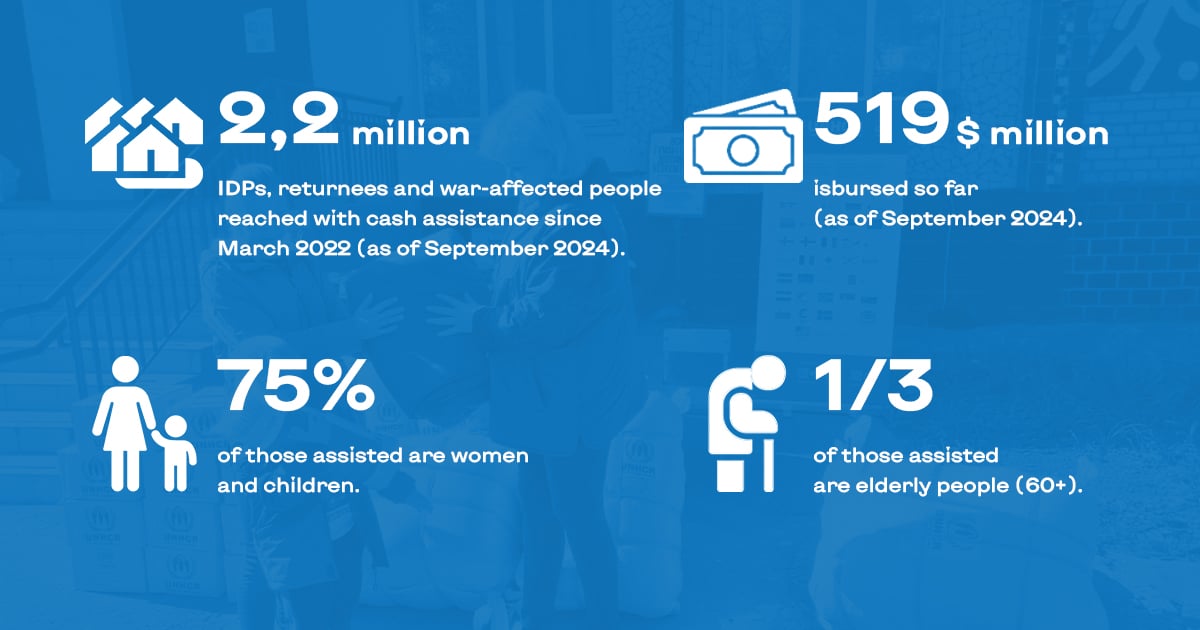
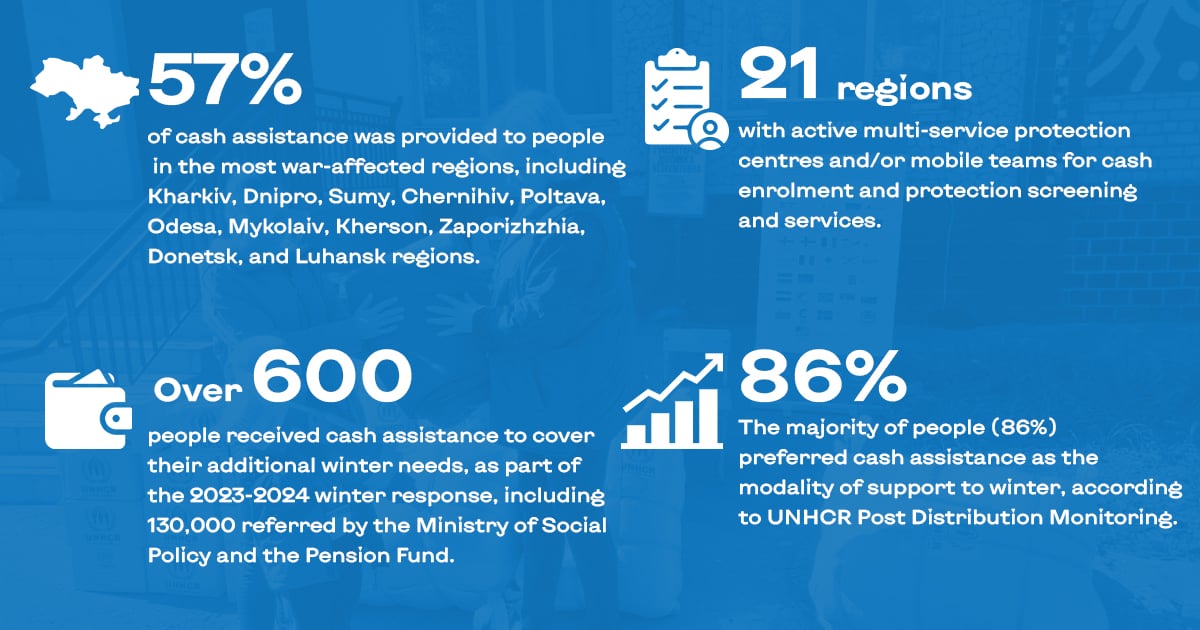
Oksana's story
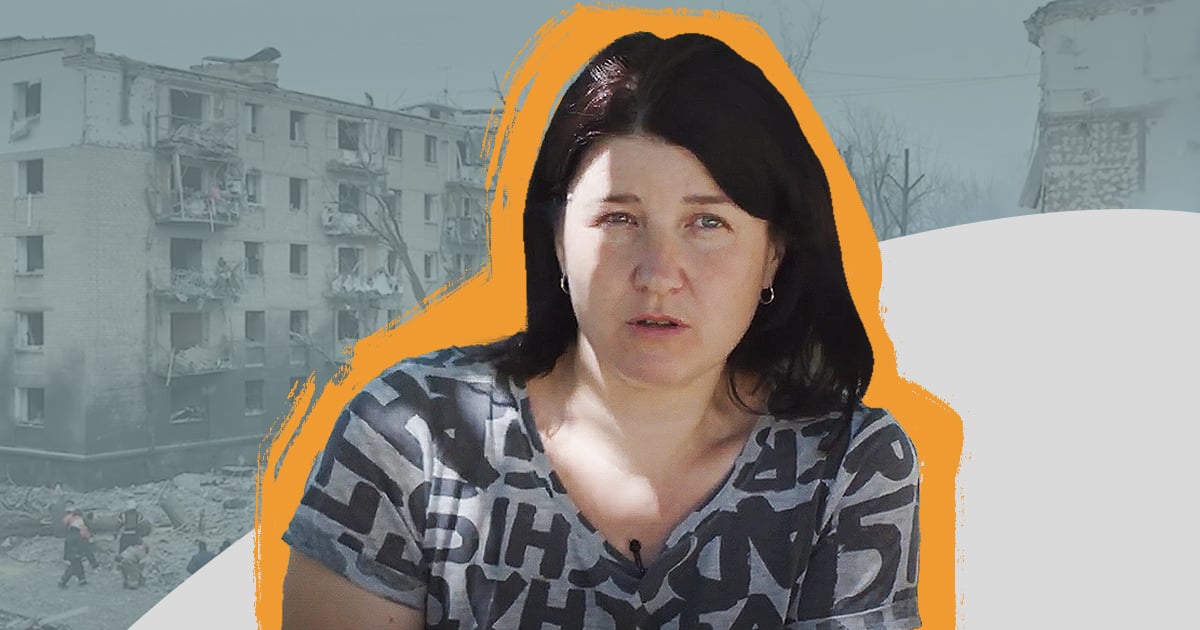
"My son said to me, 'Mother, look! It is a shooting star.' But it was missiles flying past our windows," said Oksana Tereshchenko.
Oksana is from the village of Prykolotne in the Kharkiv region of eastern Ukraine. While her husband worked for a local business, she cared for their young son and baked cakes for a living. The family built their own house, complete with a playground for their son and other local children.
Russian Armed Forces occupied the village on 24 February 2022. The occupation lasted until September 2022, and the family stayed home the entire time.
In 2024, as Russian forces launched a new ground offensive, Oksana, along with her young son and elderly parents, was forced to flee their home due to constant shelling that left the village without electricity or water.
"In an instant, our whole lives came to a halt. That was when we decided to leave. We called the evacuation service and left. The village was being shelled constantly, and I feared for my child's life," she says.
After evacuating, the family learned about UNHCR's cash assistance programme. Oksana said they received the assistance within a week of applying and decided to rent a house to start over. She dreams of a house in western Ukraine so her son can attend school in peace.
"Our grandmother, who can hardly walk, is with us. It is very difficult for her to live in an apartment, and she would benefit from some fresh air. We are now trying to find something more suitable," Oksana adds.
She hopes to return home to retrieve her baking equipment so she can resume doing what she loves—baking cakes and earning a living while caring for her child.
Alla's story
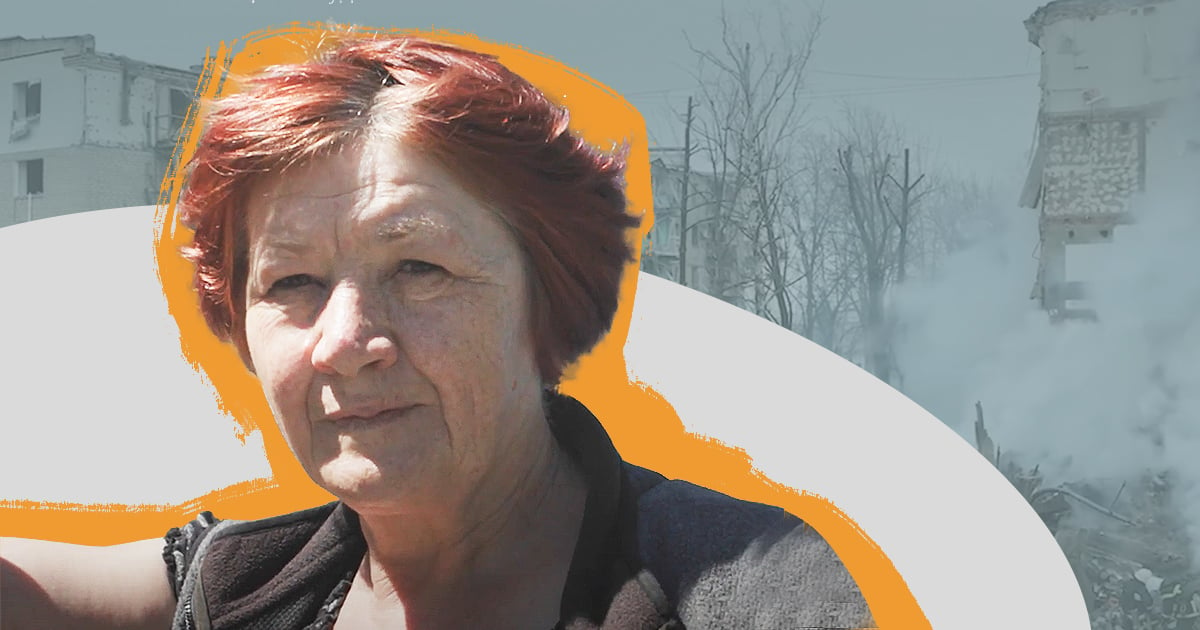
Alla is from Vysokopillia, in the Kherson region of southern Ukraine. She was forced to flee when her village was occupied. Six months later, she and her husband returned to find their home in ruins, with no windows, no doors, and a damaged roof. "Before the war, life was wonderful. We had land, and we could afford things. My husband owned his own truck and made a good living. We built this house from nothing. Then the war came and changed everything… We prayed that our house would still be standing. As my friend said, we were praying for walls to be there to lean on," Alla shared.
Russian forces had set up their headquarters in the family's home. When they withdrew, they left tripwires all over the yard. Fortunately, no one was injured. Later, the couple counted seven missile hits nearby—some hit their neighbours' yards, while others landed in their garden.
"This stress, this destruction… it was not as important as coming back home. We thought we could rebuild everything ourselves. But we soon realized we could not do it without money or assistance," Alla recalled.
In addition to their destroyed home, the couple found their truck damaged, and their land full of mines. With no money to rebuild, they covered the broken windows with plastic sheeting and filled the damaged roof with foam just to make the house liveable.
After applying for UNHCR's cash assistance programme, experts inspected their home. Soon after, the family received the cash assistance they needed to buy new roof shingles, roof beams, and windows.
"If it was not for the assistance, we could not have afforded it. We had no work or money. We even used the savings for my grandfather's gravestone to cover war expenses. This assistance gave us so much. We rebuilt our home. We can sleep peacefully now, knowing the roof will not collapse on us. We have nearly restored everything—we have windows and doors. After sleeping in other people's beds, there's nothing better than coming home to our own walls," Alla concludes.
Nataliia's story
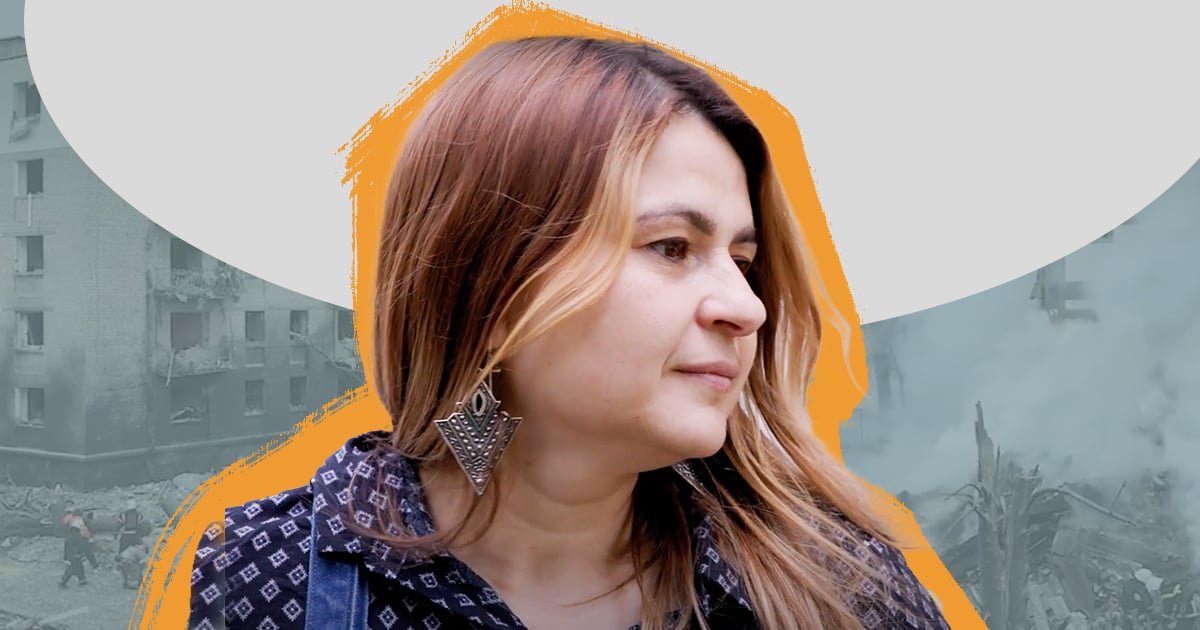
Nataliia is from the Zaporizhzhia region of southern Ukraine. She fled her home in March 2022. Her situation was particularly challenging because she has been visually impaired since childhood.
"I started losing my eyesight after my father died when I was nine. I was diagnosed and told there was no treatment, only surgery. In the 11th grade, I realized I was losing my eyesight rapidly," Nataliia recalls.
Faced with the question of what to do next, she chose to become a masseuse and work in rehabilitation. She has no regrets about this decision, as it allowed her to experience the world in a different way. However, the question of what to do arose again during the war while she was in a foreign city.
"The most difficult thing was adapting to everything at once. When you lose so much, it is hard to understand who you are and where you need to go, as well as how to rebuild your entire life," she says.
Eventually, Nataliia decided to take the plunge and start her own business with support from UNHCR. The funds she received covered her housing costs, allowing her to save enough to rent a space for her massage parlour.
"I hope this business will allow me to stand firmly on my feet, as well as allow me to rebuild and educate my child while enabling me to experience something new," said Nataliia.
UNHCR, the UN Refugee Agency, has been working in Ukraine for 30 years to protect the rights of refugees, stateless persons, and internally displaced persons and to support integration of those returning to their places of origin. Since the illegal annexation of Crimea by the Russian Federation in 2014, as well as the outbreak of war in eastern Ukraine and the full-scale invasion on 24 February 2022, UNHCR has significantly scaled up its presence and activities. In 2022, UNHCR and its partners supported 4.3 million people in Ukraine, assisted 2.63 million in 2023, and have delivered more than 1.1 million multisectoral services to war-affected people across the country so far in 2024.



